Covid: UK governments 'took eye off ball' on pandemic
- Published
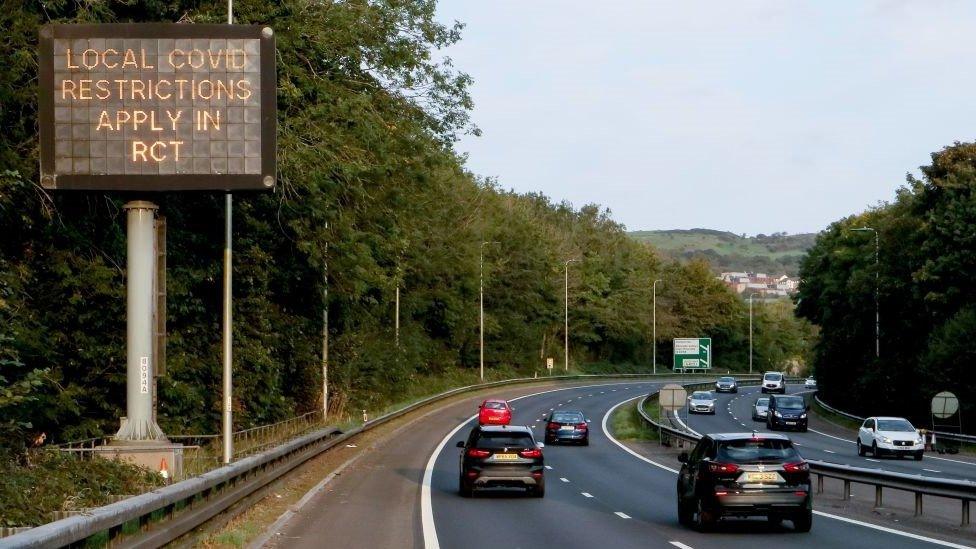
Rhondda Cynon Taf is one of the areas in Wales facing local restrictions
Successive governments across the UK "took their eye off the ball" and failed to prepare for a global pandemic, despite being warned for years of the risks.
That is the view of Wales' ex-chief medical officer, who led a review into the UK response to 2009's flu epidemic.
Dame Deirdre Hine said there was of a "real danger" of a damaging second wave of coronavirus.
Her warning comes six months after the first UK-wide lockdown was introduced.
Cases are now rising again and new UK-wide restrictions are being considered, while the prospect of more local lockdowns in Wales is looming.
A pandemic remains at the top of the UK government's risk register, external but Dame Deirdre said despite that, with "pressures on resources, dare I say it, the pressures of Brexit, a lot of people's eyes have been taken off the ball".
The Welsh government said at the start of the pandemic it had "acted swiftly" to protect the public and take measures to ensure the NHS was able to cope with an increase in seriously ill people.
The UK government has previously defended its level of preparedness, saying it regularly tested its pandemic plans, "allowing us to rapidly respond to this unprecedented crisis and protect the NHS".
Dame Deirdre warned in her official report into the H1N1 flu pandemic the UK would likely face a much more severe future pandemic and should make preparations.
'Little ships rather than the large destroyers'
She said the "most significant failing" in planning was the failure to get adequate testing and tracing capability up and running in the early stages of the pandemic.
Community testing was suspended in March across the UK, with tests limited to hospital patients.
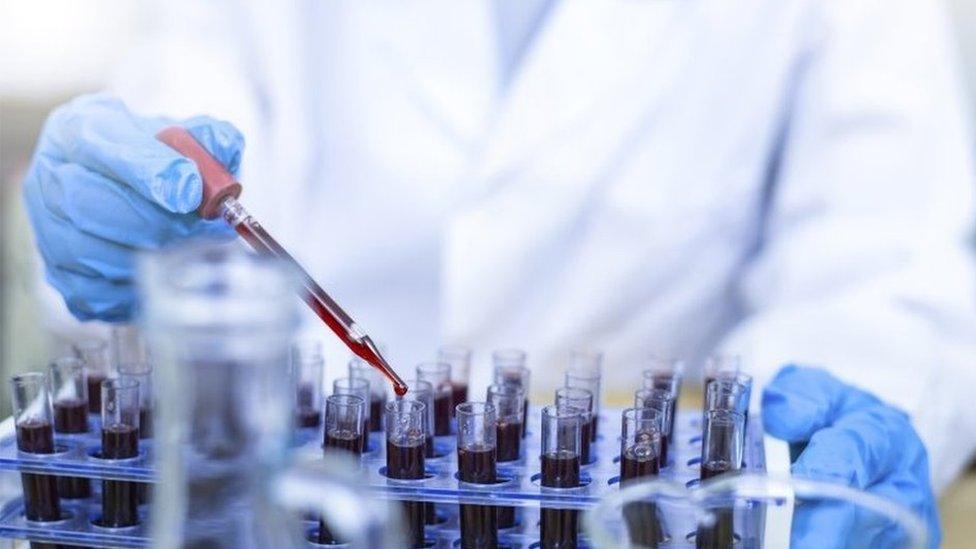
Dame Deirdre would like to see more resources for public health laboratories
"I could not understand why governments moved away from test, track and isolate - that is the basis for the control of any infectious disease," she said.
"They could have got it up and running much faster. In my view, the public health approach with laboratories right across the country - the little ships rather than the large destroyers or aircraft carriers we have now - would have been more effective and could have been mobilised very quickly.
"University labs and private labs were volunteering and were being turned away. If Germany could do it, we could do it, and Germany did it at a local level. We must resource local public health."
A lack of coordination between the four UK nations at times had a "damaging effect", with mixed messages on restrictions increasing risk people would not stick to them.
Wales' First Minister Mark Drakeford has frequently complained of a lack of regular and reliable discussions with the UK government about the pandemic response.
Dame Deirdre praised the Welsh government for its cautious approach in easing lockdown - even though, given the current situation, she acknowledges it might not have been "cautious enough".
She has also warned of a damaging second wave of cases: "It's very clear we are on an upward curve in terms of cases and hospital admissions. I think there is a very real danger that we are going back to a position we were in in March.
"It's very difficult to see why people ignore social distancing to the extent that they do on a Friday or Saturday night in bars and clubs. I find this very difficult to comprehend when everybody must have seen the dreadful pictures of people gasping for breath on ventilators and seen the deaths of even quite young people."
What the experts tell us?
Experts at Swansea University have been modelling a "reasonable worse case scenario," which has been published by the Welsh Government.
They are using super-computers in Swansea and Cardiff linked together to examine data very closely to track problems across Wales.
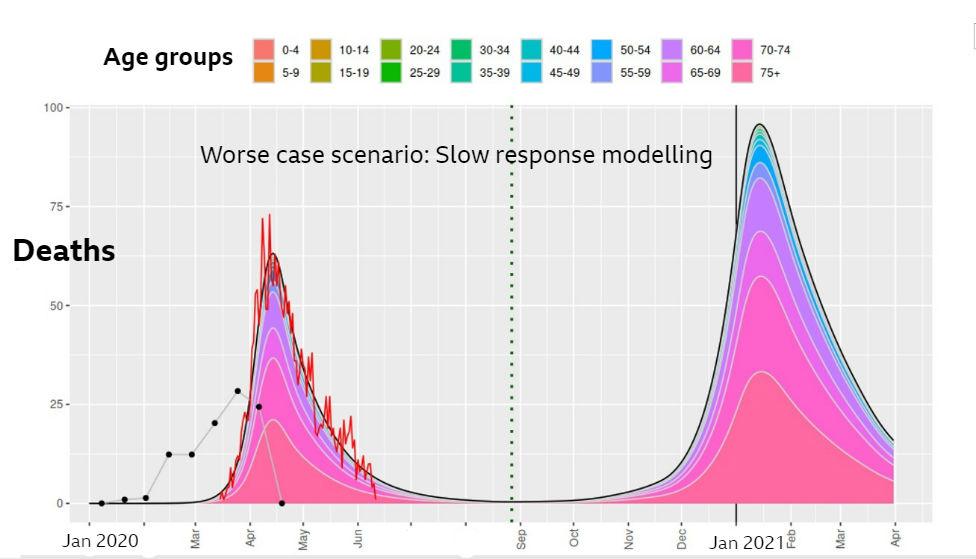
This modelling chart looks at the worse case scenario for deaths by day, if there is a slow response in Wales
It can make adjustments based on the type of contacts people have and the age groups and help in modelling, as the computers make hundreds of calculations based on cases and hospital admissions.
All this can go towards informing health officials when it is right to bring in a local lockdown.
Under the "worst case" model - with the transmission rate or R-number well above one - weekly hospital admissions would peak at just under 2,000 around Christmas, and the whole period could see 6,300 deaths by March 2021.
"Under certain scenarios of continued transmission, we could see as a worst case a larger peak and spread over a longer period," said Prof Mike Gravenor, an expert in epidemiology and biostatistics at Swansea University's medical school.
But he said it was still not inevitable and if people kept to guidelines and interventions were early enough, the worst could be avoided.
Prof Gravenor said hospital admissions were still low at the moment but if Covid-19 transmission continues over the next couple of weeks, he would expect to see those numbers increase.
There's quite a lot of comparison around the world wars and I think it will almost be of similar significance historically but hopefully over a shorter period of time
What about the long-term impact?
Dame Deirdre is worried there could be a "damaged generation" losing out on education which could have a "lasting legacy on the economy of Wales," due to its reliance on manufacturing.
She also concerned about the wider health impact with the NHS facing a "backlog" of people needing treatment for other conditions such as cancer.
"There are quite a lot of comparisons around with the world wars and I think [the pandemic] will be of similar significance historically although hopefully over a shorter period of time," she added.
On a more positive note, Dame Deirdre is hopeful society will bounce back and praised the NHS: "There is a natural resilience that will counteract this, so I don't want to be too Cassandra-like. People do bounce back very quickly.
"One of the positives has been how well the NHS and hospital services have responded to the pressure... that has been extremely heartening."
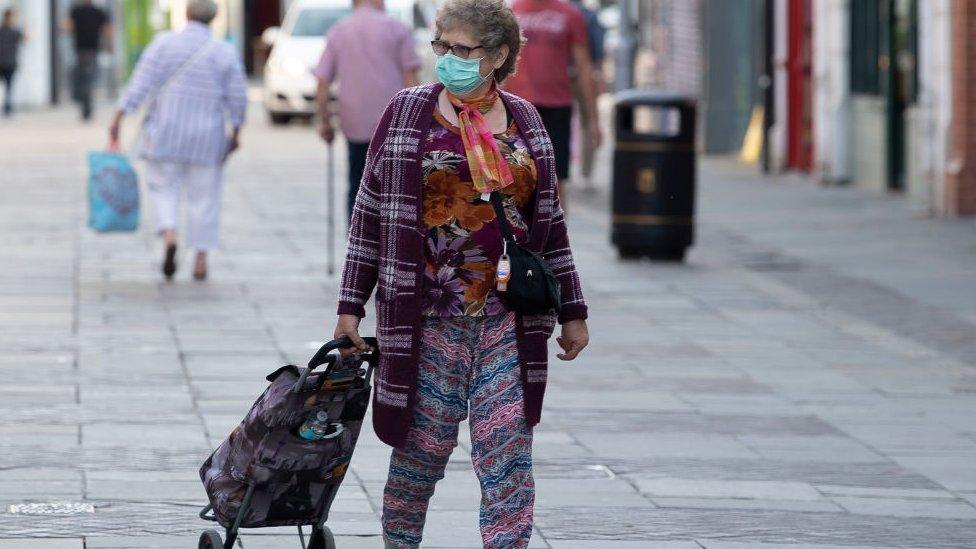
Ministers said they had introduced measures across Wales to prevent the virus's spread
The Welsh government said: "In the initial phases of the pandemic, widespread testing and contact tracing was not routinely recommended, because the majority of people were staying at home.
"Contact tracing was introduced in Wales in June, as coronavirus restrictions were gradually relaxed. It has been very successful at identifying clusters and outbreaks because it is both a public service and locally delivered.
"We continue to be concerned about the possibility of an increase in coronavirus over the autumn and winter and have introduced measures across Wales to prevent the virus's spread, while simultaneously increasing testing and contact tracing capacity, and ensuring the NHS has the capacity it needs."
On Tuesday, ministers in Wales also welcomed the prime minister's commitment to having a "regular and reliable rhythm" to UK-wide decision-making, with the devolved governments having "a clear and important role in that process."
- Published22 September 2020
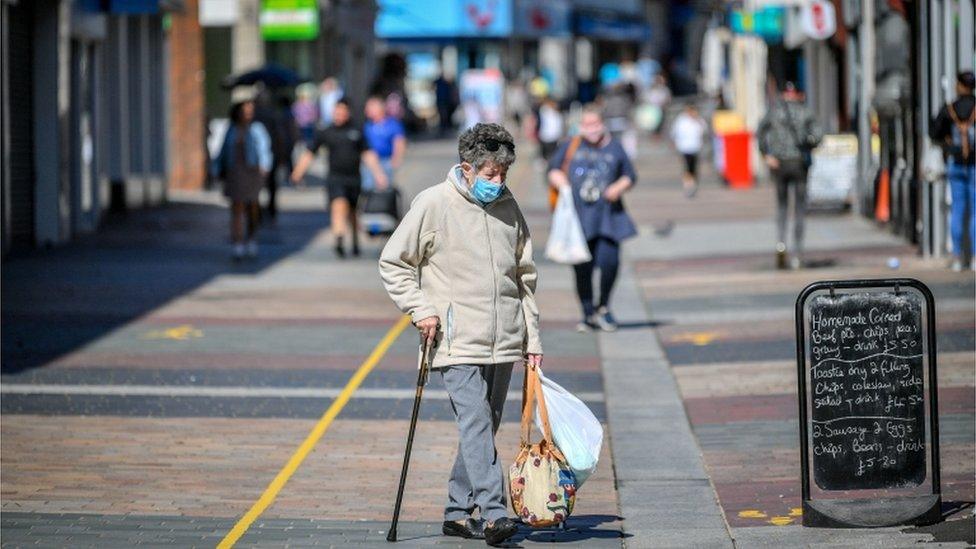
- Published18 September 2020
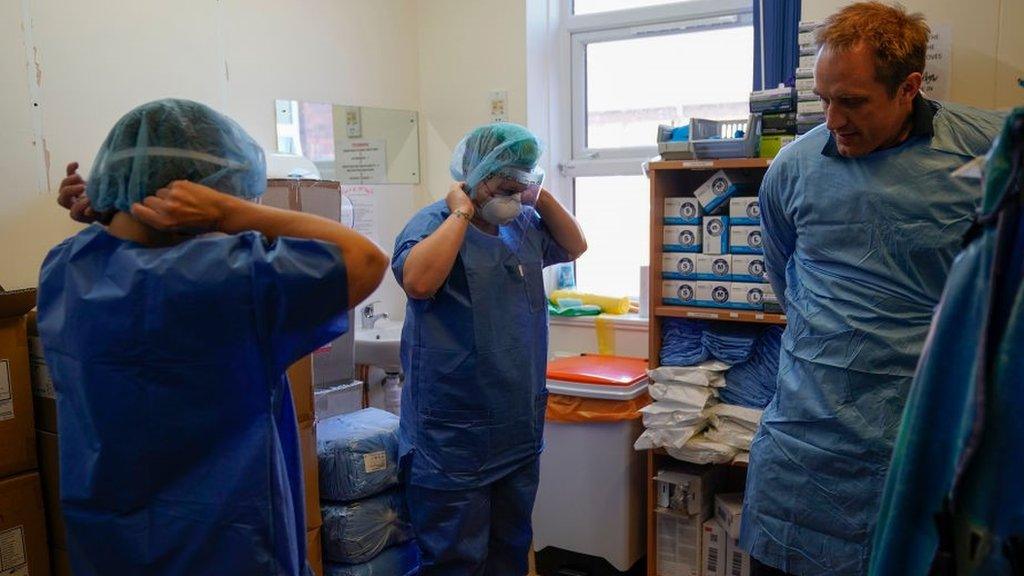
- Published9 September 2020
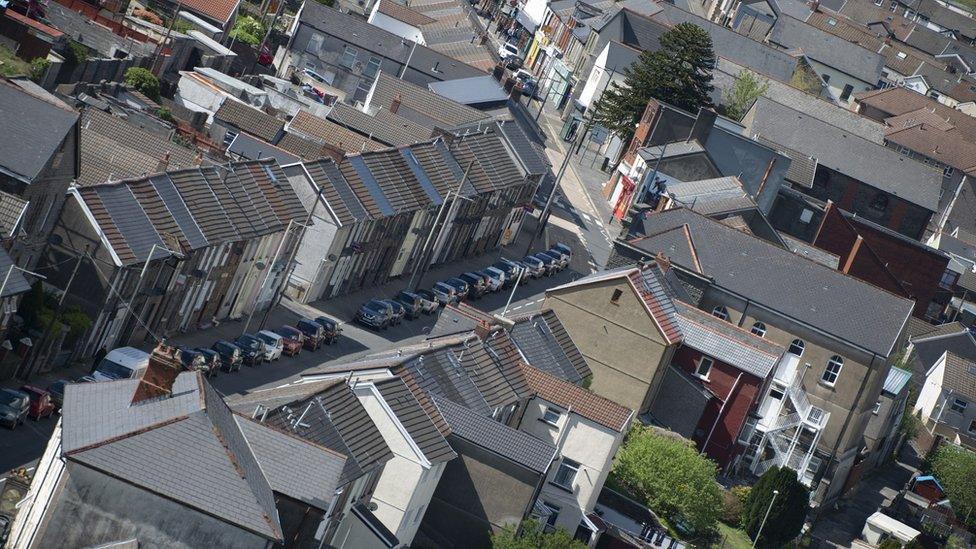
- Published18 September 2020
